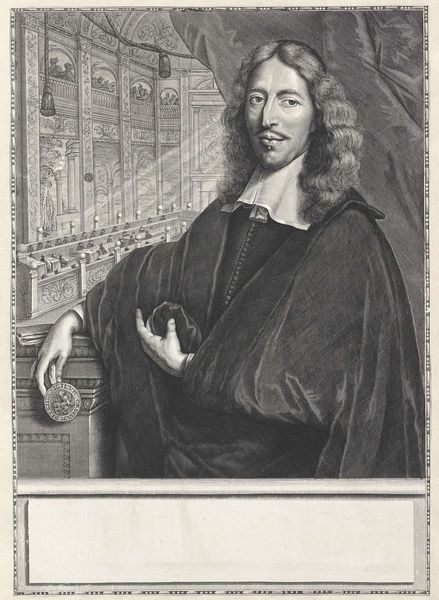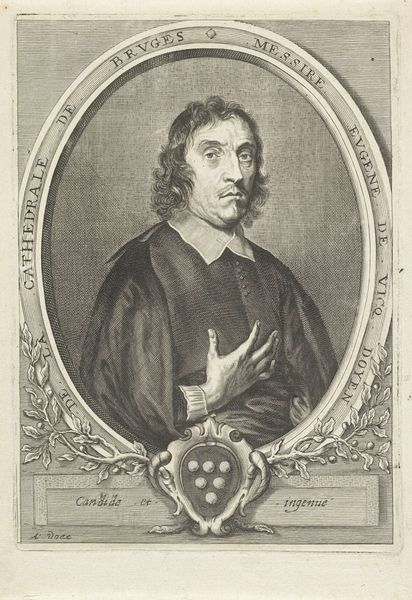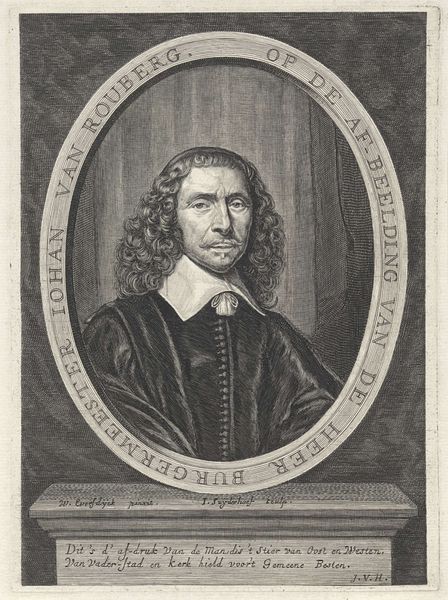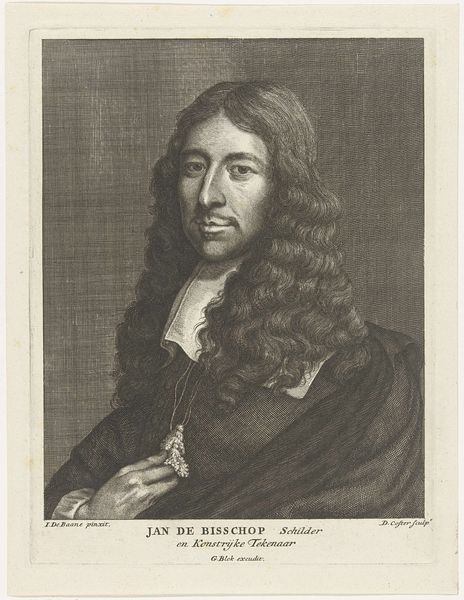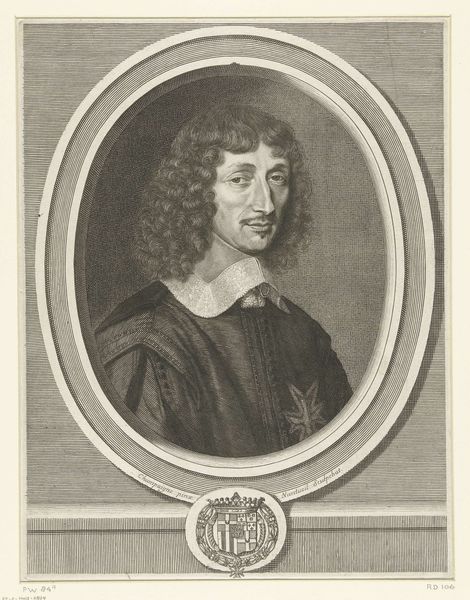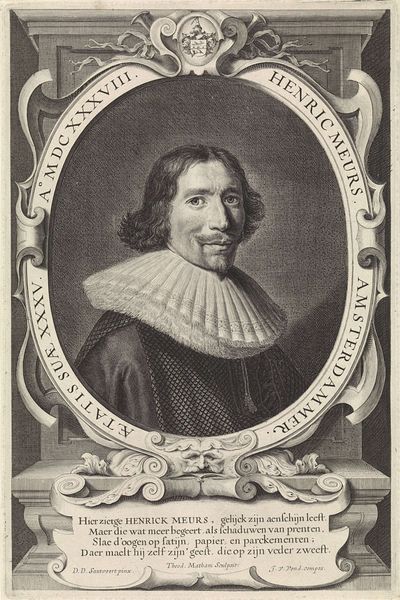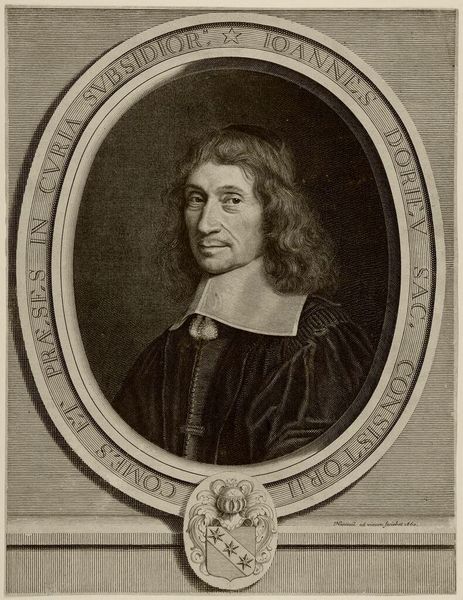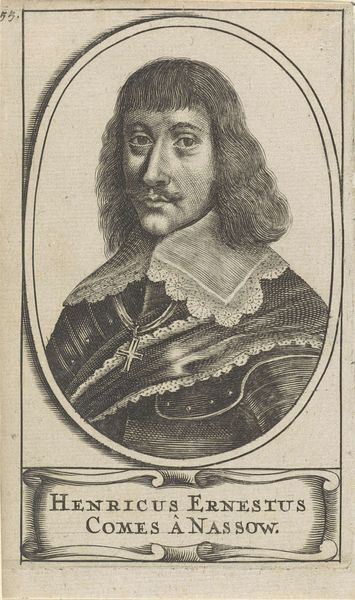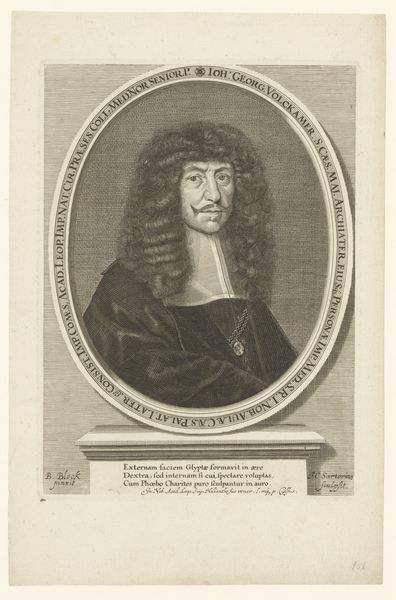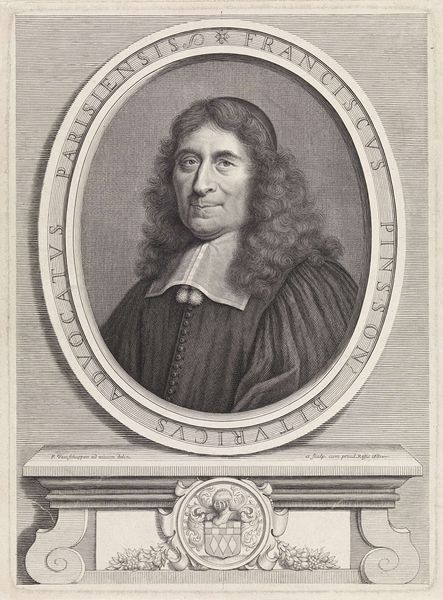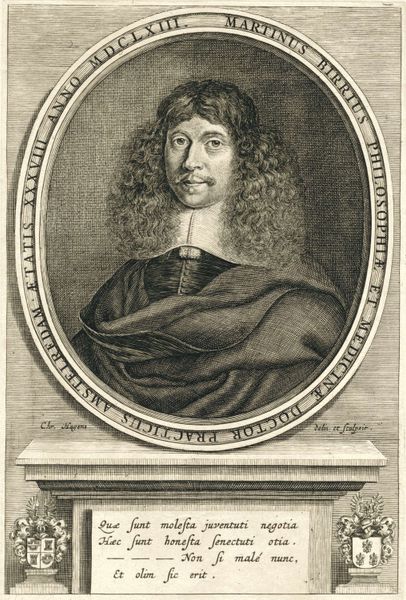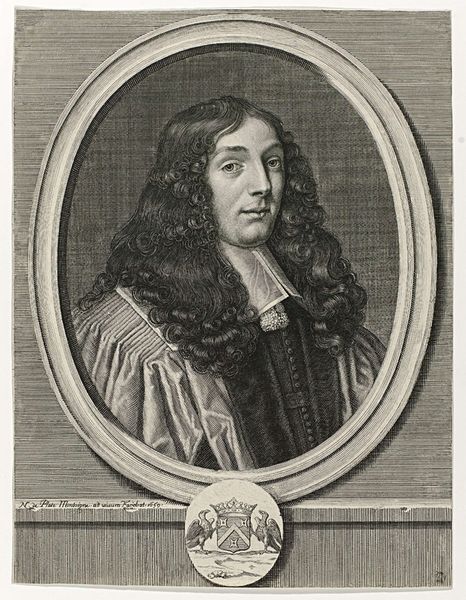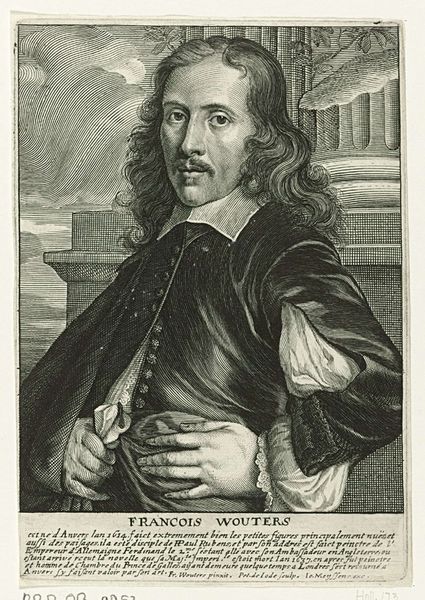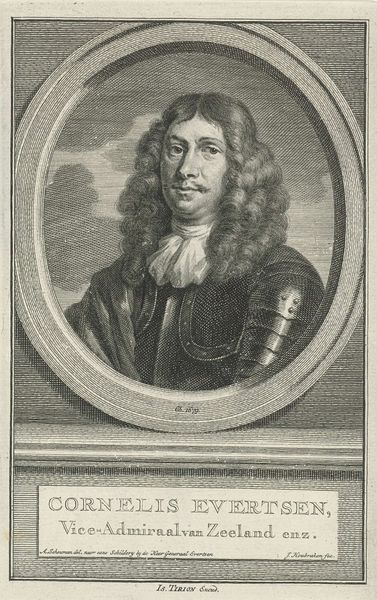
engraving
#
portrait
#
baroque
#
dutch-golden-age
#
history-painting
#
engraving
Dimensions: height 203 mm, width 154 mm
Copyright: Rijks Museum: Open Domain
Curator: Here we have a portrait of Wouter Schouten, likely dating from around 1663 to 1695, executed in engraving. Editor: Immediately I’m struck by this sense of reserved power, almost…melancholy. The turbulent sea in the background juxtaposed with his relatively calm expression makes for an intriguing tension. Curator: The composition indeed establishes a dichotomy. Note the framing: a classical column versus the unpredictable marine environment, suggesting Schouten's position straddling intellect and adventure. His posture, too, exhibits this: a relaxed hand gesture combined with an almost regal bearing. Editor: It's as though he’s seen some wild things, the kind that etch themselves onto your soul but remain just out of sight in polite company. I mean, look at the detail of the waves practically swallowing that tiny ship! I wonder what personal storms Schouten weathered. Curator: That's precisely what the engraver sought to convey. It is worth observing how light plays across the face, carefully sculpting the features to emphasize contemplative intelligence. The textures achieved are remarkable—the softness of the hair versus the crispness of the collar, all delineated through precise line work. Editor: Absolutely! It gives him this grounded, very human feel amidst this… grand allegory. I love how even in something seemingly straightforward like a portrait, stories are bubbling just under the surface. This almost makes you wonder, who will the "real" Wouter have been like? Curator: It's a skillful articulation of status and character through visual rhetoric, a prevalent characteristic of the Dutch Golden Age portraiture. This image offers, beyond aesthetic consideration, socio-historical insights into the individual and the era that defined him. Editor: Ultimately, this is so evocative, even across the centuries, don’t you think? He feels remarkably present and relevant to our current experiences too.
Comments
No comments
Be the first to comment and join the conversation on the ultimate creative platform.
